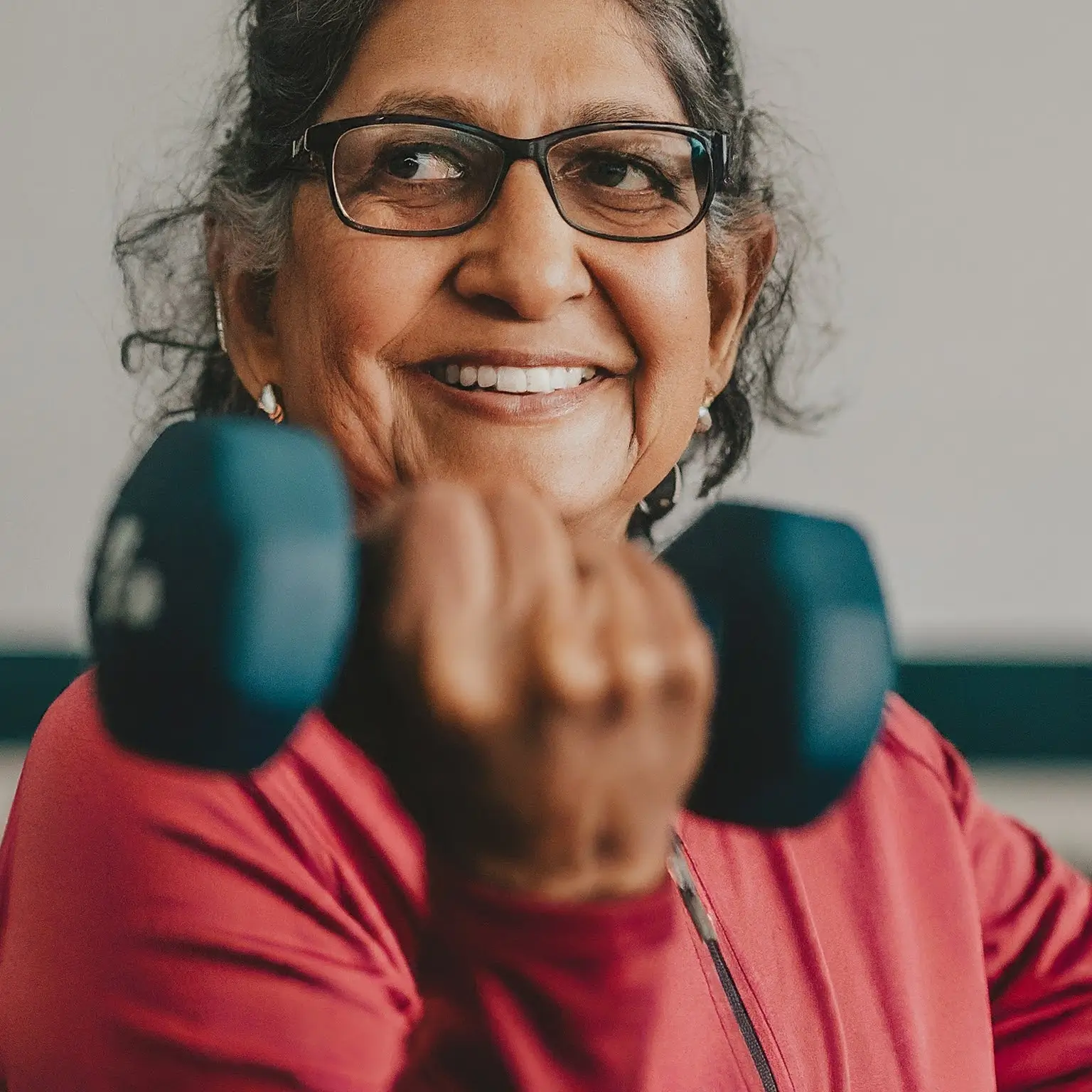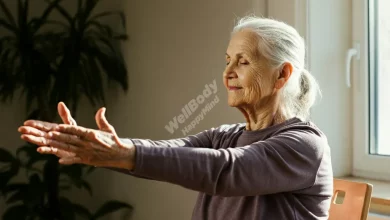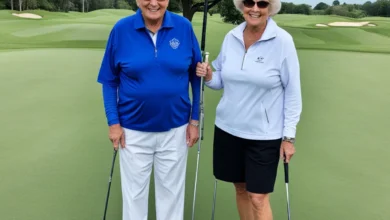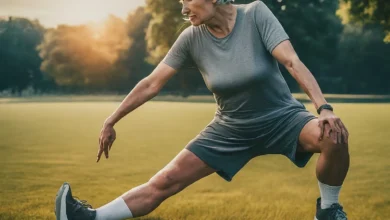Senior Fitness Diaries: Setting and Achieving Your Health Goals

Did you know that regular exercise can add up to five years to your life? That’s right! Staying active as we age is crucial for our health and happiness. In this post, we’ll explore how seniors can set and achieve fitness goals for a better life.
Why Fitness Matters for Seniors
Exercise is like a magic pill for older adults. It helps in many ways:
- Keeps your heart strong
- Makes your bones tougher
- Lifts your mood
- Helps you think clearly
- Keeps you independent longer
Imagine being able to play with your grandkids without getting tired. Or going on trips without worrying about your health. That’s the power of staying fit!
Setting Realistic Health Goals
Smart goals are the key to success. Here’s how to set them:
- Be specific: “I want to walk for 30 minutes” is better than “I want to exercise more.”
- Make it measurable: Track your progress with numbers or time.
- Keep it achievable: Start small and build up.
- Make it relevant: Choose activities you enjoy.
- Set a time frame: Give yourself a deadline.
Some good goals for seniors might be:
- Walk for 20 minutes every day
- Do strength training twice a week
- Stretch for 10 minutes each morning
Assessing Your Current Fitness Level
Before you start, know where you stand. Here’s what to do:
- Talk to your doctor first. Safety comes first!
- Try these simple tests at home:
- How long can you stand on one foot?
- How many arm curls can you do in 30 seconds?
- How far can you walk in 6 minutes?
If these tests are hard, don’t worry. A fitness trainer who works with seniors can help you get started safely.
Creating Your Senior Fitness Plan
A good fitness plan includes different types of exercise. Let’s break it down:
Cardiovascular Exercise
Cardio keeps your heart happy. It’s like giving your heart a friendly workout. Here are some easy options:
- Walking
- Swimming
- Dancing
- Cycling on a stationary bike
Try to do cardio for 30 minutes, 5 days a week. But start slow! Even 10 minutes a day is a great start.
Strength Training
Strong muscles help you stay independent. You don’t need heavy weights to get stronger. Try these:
- Chair squats
- Wall push-ups
- Arm curls with light dumbbells
- Leg raises
Do these exercises 2-3 times a week. Remember to rest between workout days.
Flexibility and Balance
Stretching keeps you limber and steady. It helps prevent falls too. Try these:
- Gentle yoga
- Tai Chi
- Simple stretches like shoulder rolls and ankle rotations
- Standing on one foot (hold onto a chair for safety)
Do some stretching every day. For balance exercises, try them 2-3 times a week.
Nutrition for Senior Fitness
Good food fuels your fitness journey. Here’s what to focus on:
| Nutrient | Why It’s Important | Good Sources |
|---|---|---|
| Protein | Builds and repairs muscles | Lean meats, fish, beans, eggs |
| Calcium | Keeps bones strong | Dairy, leafy greens, fortified foods |
| Fiber | Aids digestion | Whole grains, fruits, vegetables |
| Vitamin D | Helps absorb calcium | Sunlight, fatty fish, fortified foods |
Don’t forget to drink water! Aim for 6-8 glasses a day. It keeps you hydrated and helps your body work better.
Overcoming Common Obstacles
Staying fit can be challenging, but you can do it! Here’s how to tackle common issues:
- Physical limitations:
- Work with your doctor to find safe exercises
- Try seated exercises if standing is hard
- Use supportive equipment like chairs or pool noodles
2. Staying motivated:
- Set small, achievable goals
- Reward yourself for progress
- Find a workout buddy
- Mix up your routine to keep it fun
3. Dealing with setbacks:
- Be kind to yourself
- Remember that progress isn’t always linear
- Adjust your goals if needed
Tracking Your Progress
Seeing your improvement can be very motivating. Here’s how to keep track:
- Keep a simple exercise diary
- Use a pedometer to count steps
- Take monthly fitness tests (like the ones we mentioned earlier)
- Notice daily life improvements (like climbing stairs more easily)
Celebrate every win, no matter how small!
Social Aspects of Senior Fitness
Exercising with others can make fitness more fun. Try these ideas:
- Join a senior fitness class at your local community center
- Find a walking group in your neighborhood
- Ask family members to exercise with you
- Try online fitness classes with friends
Safety Considerations
Stay safe while getting fit. Remember these tips:
- Always warm up before exercising
- Listen to your body – if it hurts, stop
- Drink water before, during, and after exercise
- Wear comfortable, supportive shoes
Stop exercising and call your doctor if you experience:
- Chest pain
- Dizziness
- Shortness of breath that doesn’t go away with rest
- Sudden, severe pain
Technology and Senior Fitness
Modern tech can make fitness easier and more fun. Here are some options:
- Fitness apps:
- MyFitnessPal (for tracking food and exercise)
- Silver Sneakers GO (designed for seniors)
- Tai Chi for Seniors
2. Wearable devices:
- Fitbit
- Apple Watch
- Garmin watches
3. Online resources:
- YouTube videos for senior fitness
- Zoom exercise classes
- Virtual personal training sessions
Remember to be careful when using new technology. Ask a family member or friend for help if needed.
Success Stories
Many seniors have achieved amazing fitness goals. Here are a few inspiring examples:
- Mary, 72, started walking daily and lost 30 pounds in a year
- John, 80, improved his balance through tai chi and hasn’t fallen in 2 years
- Susan, 68, started strength training and can now play with her grandkids without getting tired
These stories show that it’s never too late to start your fitness journey!
Conclusion
Your health is in your hands. By setting fitness goals and working towards them, you can enjoy a happier, healthier life. Remember:
- Start small and build up slowly
- Find activities you enjoy
- Stay consistent
- Celebrate your progress
Every step you take is a step towards better health. You’ve got this!
Additional Resources
Want to learn more? Check out these helpful resources:
- National Institute on Aging – Exercise and Physical Activity
- CDC – Physical Activity for Older Adults
- Book: “Fitness After 50” by Walter Bortz II, M.D.
- AARP Fitness Section
Remember to check with your local senior center or YMCA for fitness programs in your area.
Your journey to better health starts today. What small step will you take to get moving? Every bit of activity counts. Here’s to a healthier, happier you!



